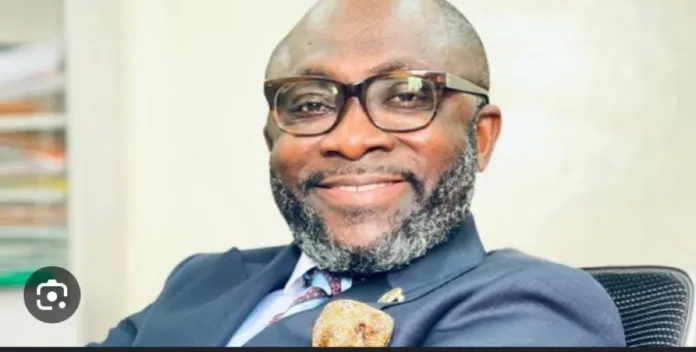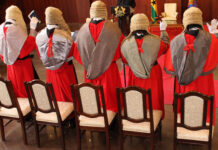
The Director of the Ghana School of Law, Lawyer Yaw Oppong has called on the judiciary to incorporate the code of conduct of judges into the curriculum of the school.
According to him, the current generation of lawyers deem the judiciary as a place where most of them aspire to be because they see it as an elevation.
The Code represents a concise yet comprehensive set of principles addressing the many difficult ethical issues that confront judges as they work and live in their communities.
Lawyer Yaw Oppong said this code of ethics should be introduced as a course. He made this call when he was giving his goodwill message at the two-day annual conference of Association of Magistrates and Judges of Ghana.
“We note with concern that the Ghana School of Law, (that) there is a whole course in which my learned senior brother Justice (Kweku Tawiah) Ackaah-Boafo, JA, (Justice of the Court of Appeal) and others are teaching on the conduct of lawyers,” he said.
“Unfortunately, we don’t have a subject or subject areas about the conduct of judges or ethical rules of judges even though lawyers mostly these days, when you talk to them now, deemed the judiciary as a place where most of them may aspire to go, because, they deemed it as an elevation and not as another lawyer who has just become a judge.”
He Asia’s, “it is important that we incorporate the conduct of judges which is contained in your code of ethics in the caricular of the Ghana school of law and they must not just be for the sake of leaning and writing exams but we must live it as judges or lawyers who want to become judges.”
On the issue of financial independence of the judiciary Mr Oppong said, “it is important to highlight the fact that without sufficient funds, the independent of the judiciary may not be realised in full.”
The Director of the Ghana School of Law who is also the Mawerehene of Akyem Abuakwa, one of the sub-chiefs of the Akyem Abuakwa Paramountcy, called for innovative revenue mobilization for the judiciary.
“I suggest that the judiciary may be able to incorporate some other unit for revenue for example I still think that it is not enough for a judge to dismiss a suit based on the fact that an indenture or other documents that legally must be stamp has not been stamped.
“There must be a unit in the judiciary where the court may then made the order for that document to be stamped and a commission taken by the judiciary to support its activities.
“Also, we are aware of Many cases of many laundering for example where the judiciary is able to ensure that these monies are restored to the state or the owners.
“I think a proposal for a percentage of such monies recovered to be retained by the judiciary will not be an aberration.
“I also think that where persons have virtually stolen state money or cause financial loss to the state,” he stated.
“I will also suggest that where the judiciary is able to ensure a recovery of money’s lost to the state, a commission should be retained by the judiciary.
“I think the retention of 30% of your IGF is woefully inadequate and I think we should be able to push for at least 65% of same.
“And lastly, I will pray that when you are praying about judicial independence especially the financial aspect, building courts and other residences remember that without the law school, there cannot be judges.
“We have hadly had any improvement in terms of infrastructure and so when 100 courts were being built, I would have thought that 30 classrooms would have been built for the law school as well,” he appealed.
Source: Ghana/Starrfm.com.gh/103.5FM/Murtala Inusah



